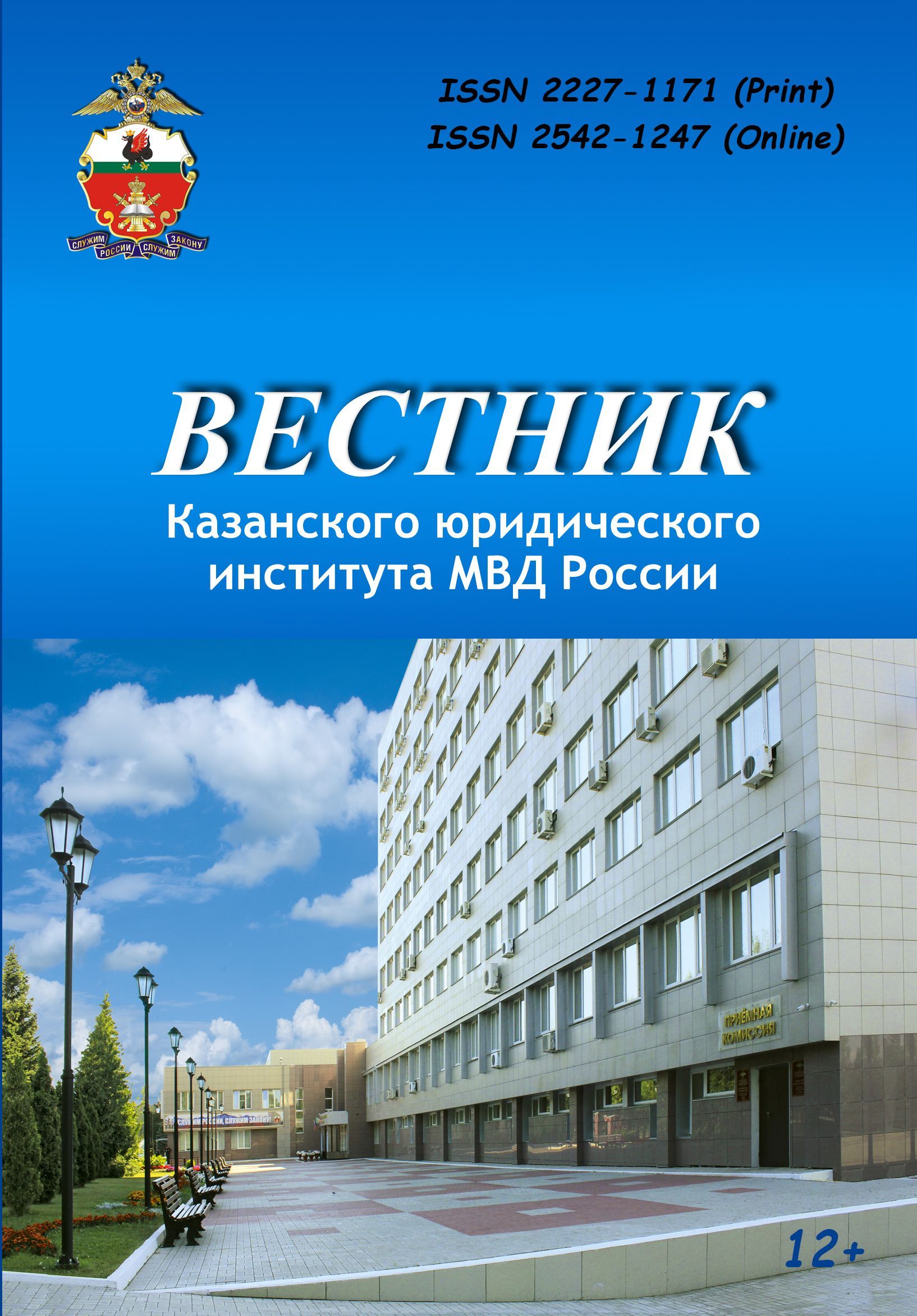Introduction: in modern conditions, the development and implementation of measures aimed at counteracting the spread of radical ideologies among prisoners acquire special urgency. Many methodological, organizational and legal aspects of countering the extremism of places of deprivation of liberty both in Russia and abroad remain poorly understood and require further study. The present paper is devoted to the analysis of the peculiarities of penitentiary prevention of violent extremism and radicalization of prisoners on the basis of studying the practical experience of the Scandinavian countries. Materials and Methods: analysis and comparison as the main methods, system and sociological methods in the context of studying the state of public relations and the effectiveness of law enforcement activities in the sphere of the de-radicalization of prisoners. 1Автор придерживается мнения, что термины «Скандинавия» и «Скандинавские страны» следует рассматривать в совокупности в рамках одного понятия, объединяющего в себе историко-культурную, географическую область, расположившуюся на севере Европы. К странам Скандинавии относятся объединенные языком, историей, культурой, религией, экономикой и образом жизни Швеция, Дания, Норвегия, Финляндия и Исландия. Results: the author on the example of the Scandinavian countries (Sweden, Denmark, Norway, Finland and Iceland) revealed the content and peculiarities of working with prisoners professing radical views, prisoners of extremism, penitentiary prevention of violent extremism and radicalization of prisoners. An analysis of the Scandinavian countries' de-radicalization strategies suggests that there are no comprehensive national, national programs for the deradicalization of prisoners in these countries. Despite the positive practice of influencing prisoners, the measures taken by the governments of these countries are not comprehensive, aimed at working with individual groups of prisoners or individual prisoners. Discussion and Conclusions: on the basis of the analysis the author comes to the conclusion that it is possible to use the positive experience of these countries in the development and adoption of measures for de-radicalization with regard to domestic penitentiary institutions. The main provisions and conclusions of the article can be used in scientific and educational activities when considering the conceptual issues of countering extremism.
penitentiary systems, counteraction to extremism, programs for the de-radicalization of prisoners
1. Dean Ch. Addressing Violent Extremism in Prisons and Probation: Principles for Effective Programs and Interventions // Policy Brief. Global Center on Cooperative Security, 2016. September.
2. Preventing the radicalisation of children by fighting the root causes // Council of Europe: Parliamentary Assembly. 2016. April 1. Doc. 14010. URL: http://www.refworld.org/docid/ 58373dae4.html (data obrascheniya: 21.02.2017).
3. Handbook on the Management of Violent Extremist Prisoners and the Prevention of Radicalization to Violence in Prisons. 2016. October 23. URL: http://www.unodc.org/pdf/criminal_justice/Handbook _on _VEPs. pdf (data obrascheniya: 21.02.2017).
4. Neumann P.R. Prisons and terrorism radicalisation and de-radicalisation in 15 countries. London, England: ICSR, King's College London; Noricks, D. M. E, 2010.
5. Hannah G., Clutterbuck L., Rubin J. Radicalization or Rehabilitation: Understanding the challenge of extremist and radicalized prisoners. Santa Monica, CA: RAND, 2008.
6. Brandon J. Unlocking Al-Qaeda: Islamist Extremism in British Prisons. London: Quilliam Foundation, 2009.
7. Sysoev A.M. Podhody k penitenciarnoy deradikalizacii osuzhdennyh za proyavleniya religioznogo ekstremizma v stranah Blizhnego Vostoka i Azii // Prestuplenie. Nakazanie. Ispravlenie. Vologda: Izd-vo Volog. in-ta prava i ekon. FSIN Rossii, 2014. № 1 (25). S. 83 - 86.
8. Actions to Make Society More Resilient to Violent Extremism // Government Communication 2014/15:144. URL: http://actions-to-make-society-more-resilient-to-violent-extremism-2014-15-144.pdf (data obrascheniya: 01.03.2017).
9. The criminal justice response to radicalization // High-level ministerial conference. Executive summary. Brussels, 2015. October 19. URL: http://ec.europa.eu/justice/events/response-radicalisation-2015/files/radicalisation_conference_ report.pdf (data obrascheniya: 01.03.2017).
10. Organisation for Security and Co-operation in Europe - OSCE (2014). Preventing Terrorism and Countering Violent Extremism and Radicalization that Lead to Terrorism: A Community-Policing Approach. Vienna: OSCE. URL: http://www.osce.org/atu/111438?download=true (data obrascheniya: 01.03.2017).
11. A common and safe future: proposal for an action plan to prevent extremist views and radicalization among young people. Lambert, R., & LastGithens-Mazer, J., 2010.
12. Furseth I, van der Aa Kühle Lene Maria. Prison Chaplaincy from a Scandinavian Perspective //Archives de sciences sociales des religions. 2011. En ligne 153. Janvier-mars, mis en ligne le 15 juin 2011. URL: http://assr.revues.org/22784; DOI:https://doi.org/10.4000/assr.22784 (data obrascheniya: 03.03.2017).
13. Back on track, preventing radicalization among prison immates. URL: http://www.cep-probation.org/back-on-track (data obrascheniya: 03.03.2017).
14. Ministry of Refugee, Immigration and Integration Affairs of Denmark: The challenge of extremism // Examples of deradicalisation and disengagement programmes in the EU. Copenhague, 2010. October. URL: www.youthpolicy.org/library/. wp-content/uploads/library/2010_Challenge_Extremisme_Deradicalisation_EU_Eng. pdf. (data obrascheniya: 03.03.2017).
15. Brett Julian. Recent Danish Counter-radicalization Initiatives: A Case Study on the Danish Security and Intelligence Service’s Dialogue Forum // Policy Brief. 2012. April. URL: http://www.globalcenter.org/wp-content/uploads/2012/06/brett_policybrief_121. pdf (data obrascheniya: 07.03.2017).
16. Denmark: Extremism & Counter-Extremism // Counter Extremist Project. URL: https://www. counterextremism.com/sites/default/files/country_pdf/DK-04222016.pdf (data obrascheniya: 11.03.2017).
17. Action plan against Radicalisation and Violent Extremism // Institute for Strategic Dialogue. URL: https://www. counterextremism.org/resources/details/id/679.
18. Finland: Dozens of hardcore Muslim prisoners preaching jihad in Finnish prisons // Tundra Tabloids.com. URL:http://tundratabloids.com/2017/01/finland-dozens-of-hardcore-muslim-prisoners-preaching-jihad-in-finnish-prisons (data obrascheniya: 11.04.2017).
19. Suomen vankiloissa kymmeniä ääriajattelua kannattavia islamisteja: osa juhli Euroopan terrori-iskuja // Yle.fi. URL: http://yle.fi/uutiset/3-9420829 (data obrascheniya: 23.03.2017).
20. Riseof Radical Islamism Puzzles Prison Authorities in Finland // Edit Sputnik, 2017. Jan 27. URL: https://sputniknews.com/europe/201701271050074729-finland-radical-islam-prison (data obrascheniya: 01.04.2017).
21. Rankin G., Cowen, K. Muslims in Europe: Integration and Counter-Extremism Efforts. 2012.
22. Bezunartea P., Lopez Jose M., Tedesco L. Muslims in Spain and Islamic Religious Radicalism // MICROCON Policy Working Pape, 2009. May 8.
23. The Policy Planners Network on Countering Radicalisation and Polarisation (PPN) // Institute for Strategic Dialogue. URL: https: // www.counterextremism.org/about-us/ppn (data obrascheniya: 28.03.2017).
24. Paschenko I.V.Sovremennye praktiki deradikalizacii osuzhdennyh za proyavlenie religioznogo ekstremizma: mirovoy opyt // Otechestvennaya yurisprudenciya. 2016. № 12 (14). S. 26 - 33.















